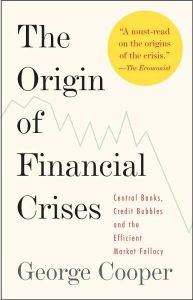
The Origin of Financial Crises
Central Banks, Credit Bubbles, and the Efficient Market Fallacy
Used by arrangement with The Knopf Doubleday Publishing Group, a division of Random House, Inc.
ISBN: 9780307473455
Pages: 208
Read offline
Recommendation
Analyst George Cooper’s book seems to prioritize passionate (although informed and understandable) advocacy over a strictly reportorial explanation of economic ideas. He clarifies his belief that much of the present fiscal misery flows from decades of unwarranted confidence in the “Efficient Market Hypothesis.” He offers the work of 1970s American economist Hyman Minsky, 19th century physicist James Clerk Maxwell and the inventor of fractal geometry Benoit Mandelbrot, to support his claim that experts could detect, govern and manage economic bubbles before they pop. He also recommends a dose of inflation plus governmental controls on credit creation to fix the economic system. He summarizes Minsky, uses Maxwell’s work on steam engine governors as a metaphor for managing credit creation and applies Mandelbrot’s observation of a memory effect to the economy. Even though his presentation of the efficient markets fallacy seems oversimplified in parts, his theory is interesting. getAbstract recommends Cooper’s background research on fiscal policy ideas, if not on every facet of fiscal events. The more government controls you favor, the more likely you are to be persuaded by his passion.
Take-Aways
About the Author
Dr. George Cooper worked at Goldman Sachs, Deutsche Bank and J.P. Morgan, and is now a principal at Alignment Investors (a division of BlueCrest Capital Management, Ltd.). He is the author of Money, Blood and Revolution.
















Comment on this summary or Start Discussion